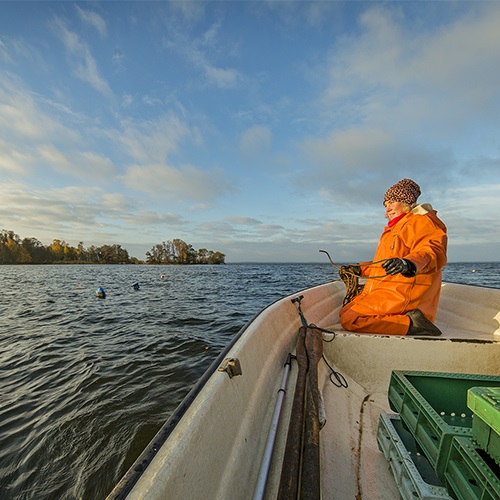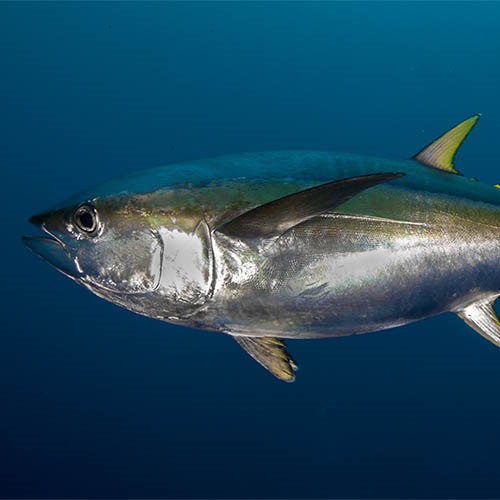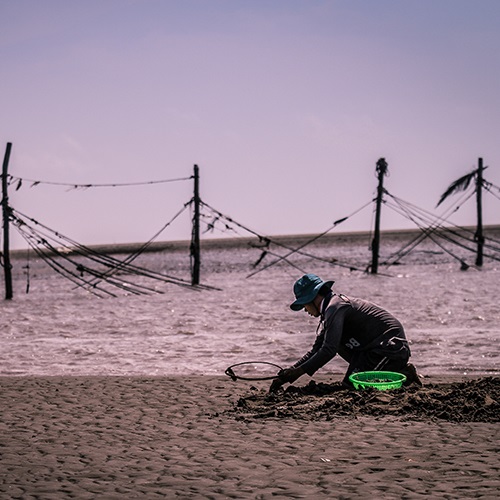MSC certification has resulted in a wide range of socioeconomic impacts to those in the program, helping to incentivise sustainable fishing and resulting in environmental sustainability outcomes for our oceans.
The research challenge
The impact of the MSC program on environmental sustainability is an established area of research. However, the social and economic effects that occur as a result of certification are less well understood. Although there are some published studies on this topic and lots of anecdotal information from practitioners on the ground, it is difficult to know whether these observations can be generalised without a balanced, rigorous program-wide study. This research is helping us to understand the positive, negative, direct and indirect consequences of the MSC program.The solution
A data-collection plan that monitors the socio-economic effects of the MSC program. To do this, the MSC held multiple workshops with expert marine social scientists and economists. This group helped develop an in-person, semi-structured interview approach, which gathers perspectives from a wide range of stakeholders. The MSC has a number of stakeholders including fisheries organisation representatives, boat-owners, processors, managers and NGOs, among others.
The work was supported by a systematic review of the documented impacts of the MSC certification program. This work highlighted important research gaps in the link between fisheries and supply chain, which we hope to fill.
We have tested our new survey with a number of MSC certified fisheries around the world. Our research on the socioeconomic drivers and impacts of eight fisheries in Western Australia was published in 2020, with a follow up study that investigated where the leading impact of social license and credibility comes from.
A third study considering the experiences of three fisheries in the USA, France and Portugal was published in 2021. This found market-based incentives like the MSC's can work to provide social and economic impacts including market access, market retention and increased trust between partners. The research provides evidence that the MSC program creates a 'market pull' that drives the seafood industry to be more sustainable, as competitors of early adopters do not wish to be excluded from key markets. Our survey was also the basis for the socioeconomic research with NEF Consulting which considered the experiences of two certified fisheries in the UK.
This research has helped us gain a better understanding of what influences the choice to join, or leave, the MSC Program. It has also helped us understand what market dynamics and stakeholder relationships mean for the different actors involved, certified or not. It provides evidence for how MSC's Theory of Change works on the ground.
Who benefits?
This research will contribute to more transparent reporting and a well-rounded understanding of the overall impacts of the MSC program. It will also identify negative effects that might need to be addressed in future. Recent research shows the rich insights marine social sciences have to offer in the pursuit of sustainable oceans, with the UN's Decade of Ocean Science for Sustainable Development building momentum in this area. Our own research, has highlighted the significant research gap between fisheries and supply chains. We hope that our project will contribute to filling this gap in order for scientists to have a better understanding of the impacts and pathways of change that seafood sustainability initiatives can offer.Research partners
The initial survey development was led by Chris Anderson, University of Washington, Seattle, USA and Amber Himes-Cornell at the UN Food and Agriculture Organization , Rome, Italy. It was further developed by Ingrid van Putten at CSIRO, Hobart, Australia. The project draws on expertise from MSC staff around the world as well as external economists, social and political scientists.For more information, please contact [email protected]
Find out more

Science and research
Our research collaborations deepen our understanding of sustainable fishing and supply chain traceability.

Socioeconomic value of tuna
Arguably the most economically valuable fish in the ocean, tuna, provide employment and food all over the world.

The impact on communities
Communities around the world depend on the fishing industry for food and income. And for many people fishing is a way of life and a necessity, not a luxury.
